The ideal diet for teenage swimmers is crucial in supporting both their athletic performance and developmental needs. A balanced intake of carbohydrates, proteins, and fats, along with proper hydration and strategic meal planning, can significantly enhance their swimming capabilities and overall health. This article explores essential dietary components and practical strategies to help young swimmers achieve peak performance.
Key Takeaways
- Incorporate a balanced mix of carbohydrates, proteins, and fats in each meal to fuel both training and growth.
- Carbohydrates should make up about 55% of a swimmer’s daily caloric intake, as they are the preferred energy source for high-intensity training.
- Proper hydration is essential, and swimmers should also focus on post-workout recovery meals to replenish energy and repair muscles.
- Consulting with a sports dietitian can provide personalized dietary strategies that cater to individual health and performance goals.
- Address common nutritional challenges such as dietary deficiencies and managing food choices on competition days by planning and education.
Fueling Up: What to Eat Before and After Training
Pre-training Power Meals
Timing your meals is crucial for maximizing your training performance. Eat a balanced meal rich in carbohydrates and proteins 2 hours before your swim to ensure you’re energized but not overly full. Ideal choices include wholegrain toast with honey, a banana with yogurt, or a bowl of porridge. If you’re pressed for time, a small snack 30 minutes prior, like a fruit and nut bar, can also do the trick.
Recovery Foods for Post-Workout
After pushing your limits in the pool, refueling your body is essential for recovery. Aim to consume a mix of carbohydrates and proteins within 30 minutes post-training. This could be a milk-based drink like a chocolate milkshake, a sandwich with lean protein, or a simple banana with yogurt. These foods help in muscle recovery and prepare you for the next day’s challenges.
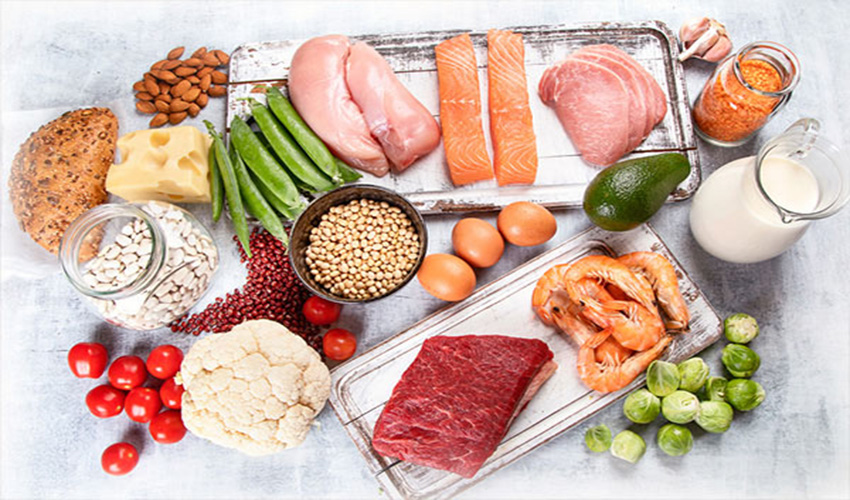
Read more: Best food to eat after swimming workout
Hydration Essentials
Hydration shouldn’t be overlooked, as it plays a pivotal role in both performance and recovery. Start hydrating with water early in the day, and continue sipping throughout your training. Post-workout, include fluids that also offer electrolytes, like coconut water or a sports drink, to replenish what was lost through sweat.
The Carb Connection: Why Carbs Are a Swimmer’s Best Friend
Importance of Carbohydrates
Carbohydrates are crucial for swimmers, providing the necessary fuel for both training and competitions. Carbs are stored as glycogen in the muscles and liver, and they’re your go-to energy during those intense sessions in the pool. After depleting these energy stores, it’s essential to replenish them to maintain peak performance.
Balancing Carbs with Other Nutrients
While carbs are vital, they need to be balanced with proteins and fats to ensure overall nutritional balance. A typical recommendation for swimmers is to derive about 60% of their calories from carbohydrates, 15% from proteins, and the remaining 25% from fats. This balance helps in sustaining energy and supporting muscle repair and growth.
Best Carb Choices for Swimmers
Choosing the right types of carbs is key. Opt for complex carbohydrates like rice, cereal, pasta, potatoes, beans, peas, and lentils, which provide a steady release of energy. Here’s a quick list of some top carb choices:
- Rice
- Cereal
- Pasta
- Potatoes
- Beans
- Peas
- Lentils
Remember, the goal is to fuel up effectively so you can excel in every backstroke or butterfly kick!
Protein and Performance: Building Blocks for Young Swimmers
Why Protein Matters
Protein is crucial for young swimmers as it repairs and rebuilds muscles after training, helping to alleviate soreness and enhance recovery. It’s not just about muscle; protein also bolsters the immune system and keeps those hunger pangs at bay during long practice sessions.
Top Protein Sources for Swimmers
To ensure your young swimmer is getting enough protein, focus on incorporating a variety of sources such as lean meats, fish, eggs, and low-fat dairy. These foods provide the essential amino acids needed for muscle growth and repair.
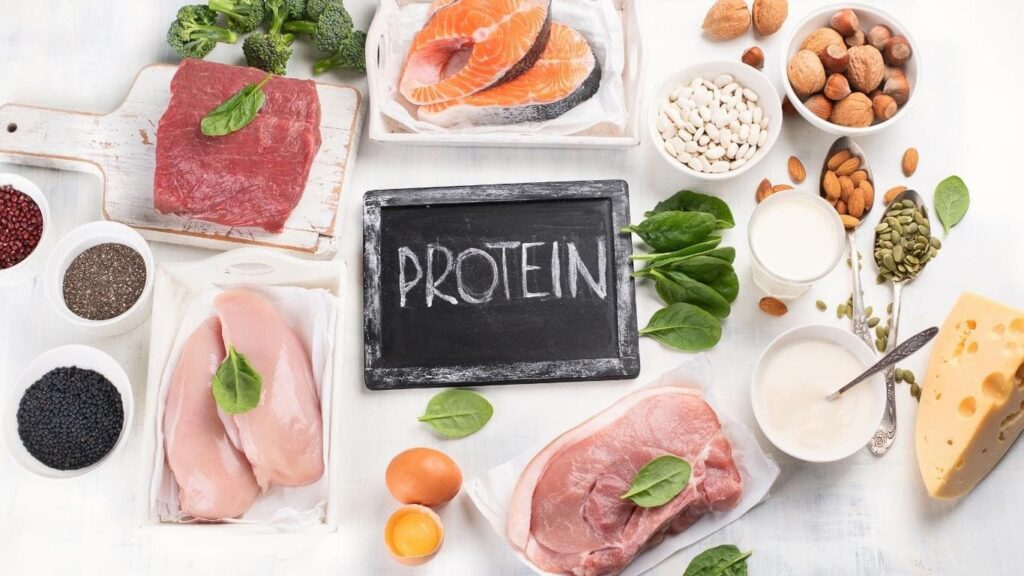
Timing Your Protein Intake
It’s vital to time protein intake to maximize its benefits. A good rule of thumb is to consume protein within 30 minutes after training to aid in optimal recovery. Here’s a quick guide on how to incorporate protein throughout the day:
- Breakfast: Eggs or Greek yogurt
- Lunch: Grilled chicken or fish
- Dinner: Lean beef or tofu
- Post-training: A protein shake or low-fat chocolate milk
Encourage your swimmer to eat a balanced diet and to eat for fuel so that they can be successful in the pool, and in the classroom.
Fats: The Good, The Bad, and The Energy
Types of Fats and Their Roles
Fats often get a bad rap, but they’re crucial for high-energy activities like swimming. Understanding the different types of fats—saturated, monounsaturated, and polyunsaturated—is key. Saturated fats, found in meat and butter, should be balanced with healthier fats like monounsaturated fats (nuts, olives) and polyunsaturated fats (flaxseed, fish).
Incorporating Healthy Fats into Meals
To keep your energy levels up and your body functioning well, include healthy fats like avocados and fatty fish in your diet. These fats not only provide sustained energy but also help in the absorption of essential vitamins.
Understanding Fat Consumption
It’s not just about the type of fat, but also the quantity. Overconsumption of the wrong kinds of fats can lead to health issues. Aim for a balanced diet where fats complement your intake of proteins and carbs, ensuring you get the most from your meals.
Vitamins and Minerals: The Unsung Heroes
Essential Vitamins for Swimmers
Vitamins are crucial for energy production, immune function, and bone health, which are vital for peak performance in swimming. Swimmers should focus on vitamins A, C, D, and E, each supporting different aspects of their health and performance. For instance, Vitamin D is essential for calcium absorption and bone growth.
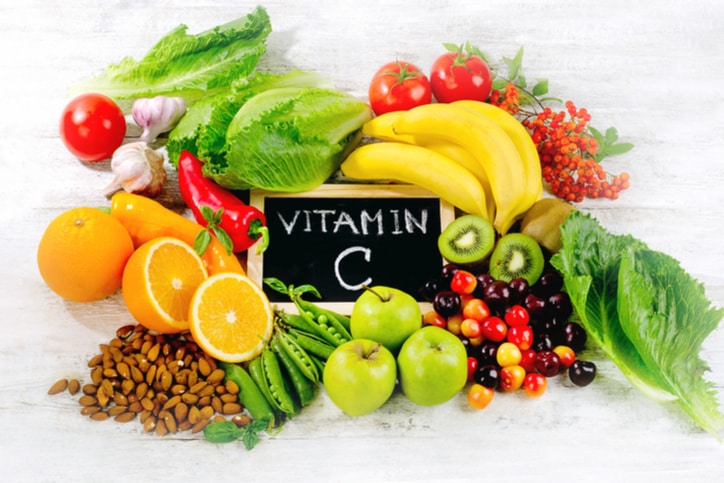
Mineral Must-Haves
Minerals like iron, zinc, and magnesium play significant roles in a swimmer’s diet. Iron helps in oxygen transport, crucial for endurance, while zinc supports the immune system. Magnesium contributes to muscle function and prevents cramps. Swimmers can get these minerals from lean meats, nuts, and leafy greens.
How to Get Your Vitamins and Minerals Naturally
Incorporating a variety of fruits and vegetables in your diet is the best way to ensure you’re getting enough vitamins and minerals. Aim to include a range of colors in your meals, as different colors often represent different nutrients. For example, dark leafy greens are rich in Vitamin K and iron, while bright oranges and yellows provide a good dose of Vitamin C and beta-carotene.
Meal Planning Strategies for Competitive Swimmers
Creating a weekly meal plan is essential for competitive swimmers to ensure they’re getting the right nutrients to fuel their bodies for intense training and competitions. Start by outlining meals and snacks for each day of the week, considering the timing of training sessions and swim meets. This structured approach helps in maintaining a balanced diet and avoiding last-minute unhealthy choices.
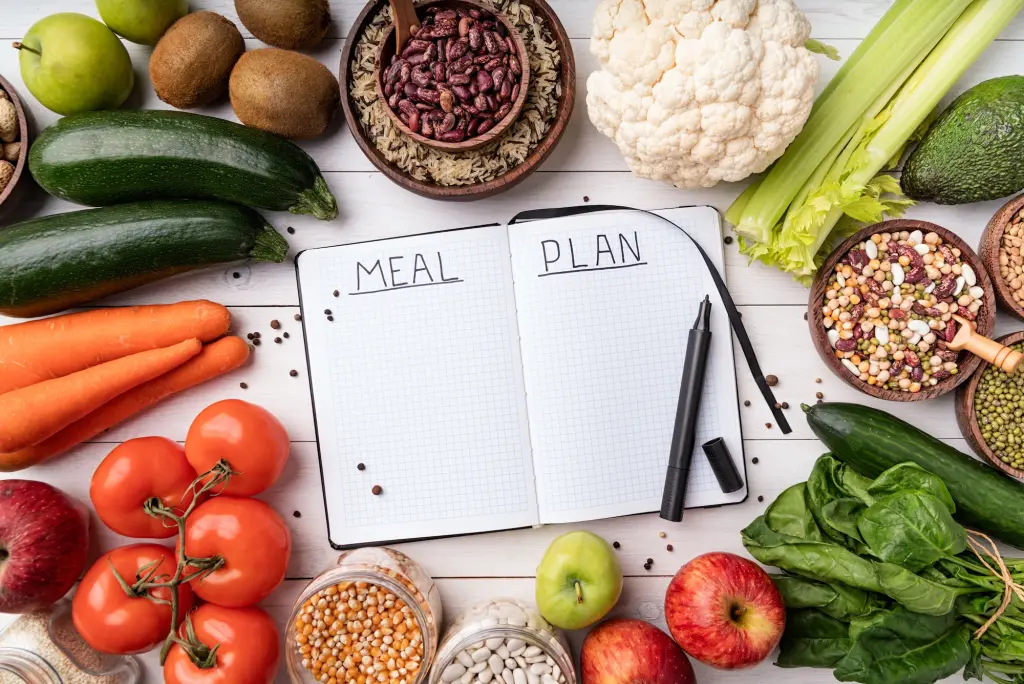
Adjusting meals around training sessions is crucial. Swimmers should have a substantial meal 3-4 hours before training and a lighter snack about an hour prior. Post-training, it’s important to refuel with a meal rich in carbohydrates and protein to aid recovery. This timing helps optimize performance and recovery, making it a key component of swim nutrition.
Consulting with a sports dietitian can provide tailored advice based on individual needs. They can help refine meal plans, suggest dietary adjustments, and ensure that nutritional intake supports overall health and performance goals. This professional guidance is invaluable for swimmers looking to improve their performance and achieve their best swim time log.
Read more: Learn about reasonable and effective swimming nutrition for swimmers
Common Nutritional Challenges and How to Overcome Them
Dealing with Dietary Deficiencies
Swimmers, especially teens, have unique nutritional needs that change as they grow and their training intensifies. Ensuring a balanced intake of vitamins and minerals is crucial. Incorporate a variety of foods like lean proteins, fruits, vegetables, and whole grains to cover all bases. Regular blood tests can help monitor levels and adjust diets accordingly.
Eating Enough: Quantity vs Quality
It’s not just about eating more; it’s about eating right. Swimmers face energy challenges with varying training phases. Nutrition must adapt to support performance, avoid weight gain, and meet unique needs of young swimmers for growth and development. Focus on nutrient-dense foods rather than just calorie-dense options. Planning meals and snacks around training schedules ensures consistent energy levels.
Navigating Food Choices on Competition Days
Competition days require special attention to diet to maintain energy and performance. Start with a substantial breakfast, include easily digestible snacks, and hydrate well. Post-competition, focus on recovery foods rich in proteins and carbohydrates. Consulting with a Sports Dietitian can provide tailored advice to optimize dietary choices on these crucial days.
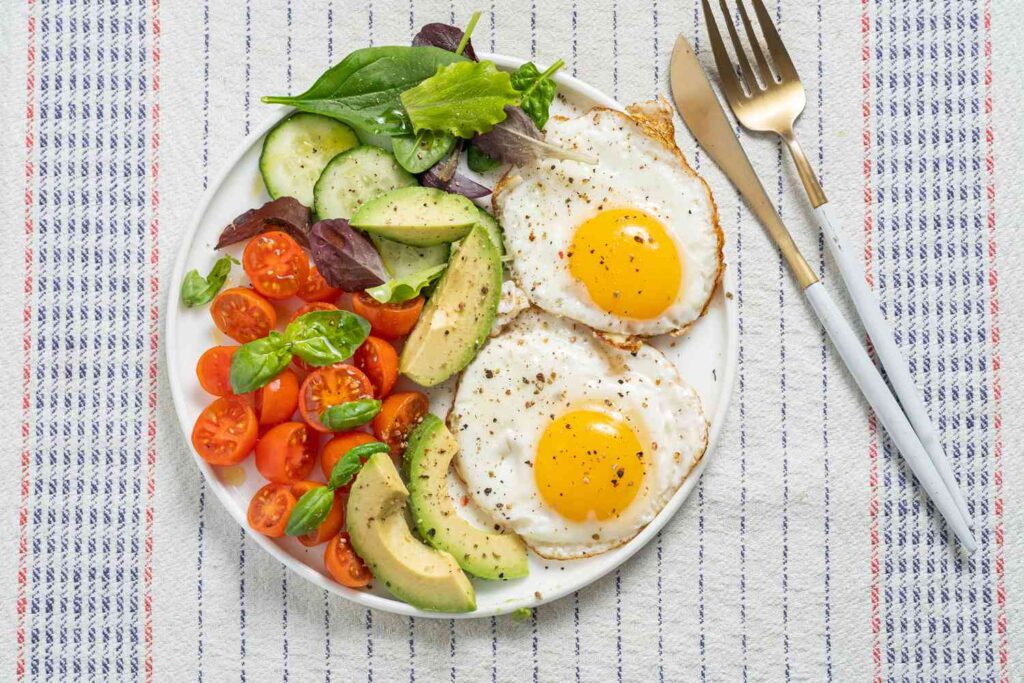
Navigating the world of nutrition can be complex, especially for athletes and active individuals. Our latest article, ‘Common Nutritional Challenges and How to Overcome Them,’ offers practical tips and strategies to help you maintain optimal health and performance. For more detailed insights and personalized advice, visit our website and explore our comprehensive Nutrition Strategies section.
Wrapping It Up
In conclusion, achieving peak performance in the pool for teen swimmers is deeply intertwined with their nutritional habits. A balanced diet rich in carbohydrates, proteins, and fats, tailored to their unique developmental needs, is crucial. Encouraging your young swimmer to eat for fuel—prioritizing nutrient-dense foods and timing meals around training—can significantly enhance both their athletic performance and overall health. Remember, what they eat is as important as their training, so keep nutrition at the forefront to help them swim their best!
Read more: Effective Diet Strategies for Swimmers to Shed Pounds
AUTHOR
Sang Nguyen
Sang Nguyen is a former national swimmer for Vietnam who has transitioned into coaching. With a passion for fostering a healthy swimming community and connecting like-minded individuals,......Read More
BLOG
Maybe You Are Interested
Good Swim Meet Snacks: What to Eat for Optimal Performance
Good nutrition is crucial for swimmers to maintain energy, recover quickly, and perform at their...
Read More...Optimizing Your Performance: The Best Diet for Swimming Training
Optimizing your performance in swimming is not just about rigorous training; it’s equally crucial to...
Read More...Achieve Peak Performance with This Diet Chart for Swimmers
Whether you’re a novice or an expert swimmer, understanding the right diet is crucial for...
Read More...Eating Like a Champion: Exploring the Diet of Michael Phelps
Michael Phelps, renowned for his Olympic triumphs, has a diet as extraordinary as his swimming...
Read More...Muscle Gain for Swimmers: Tailoring Your Diet for Strength
Swimming is a demanding sport that requires a tailored approach to nutrition to support muscle...
Read More...A Comprehensive Diet Plan To Gain Weight For Swimmers
Swimming is a demanding sport that requires meticulous attention to nutritional needs to optimize performance,...
Read More...